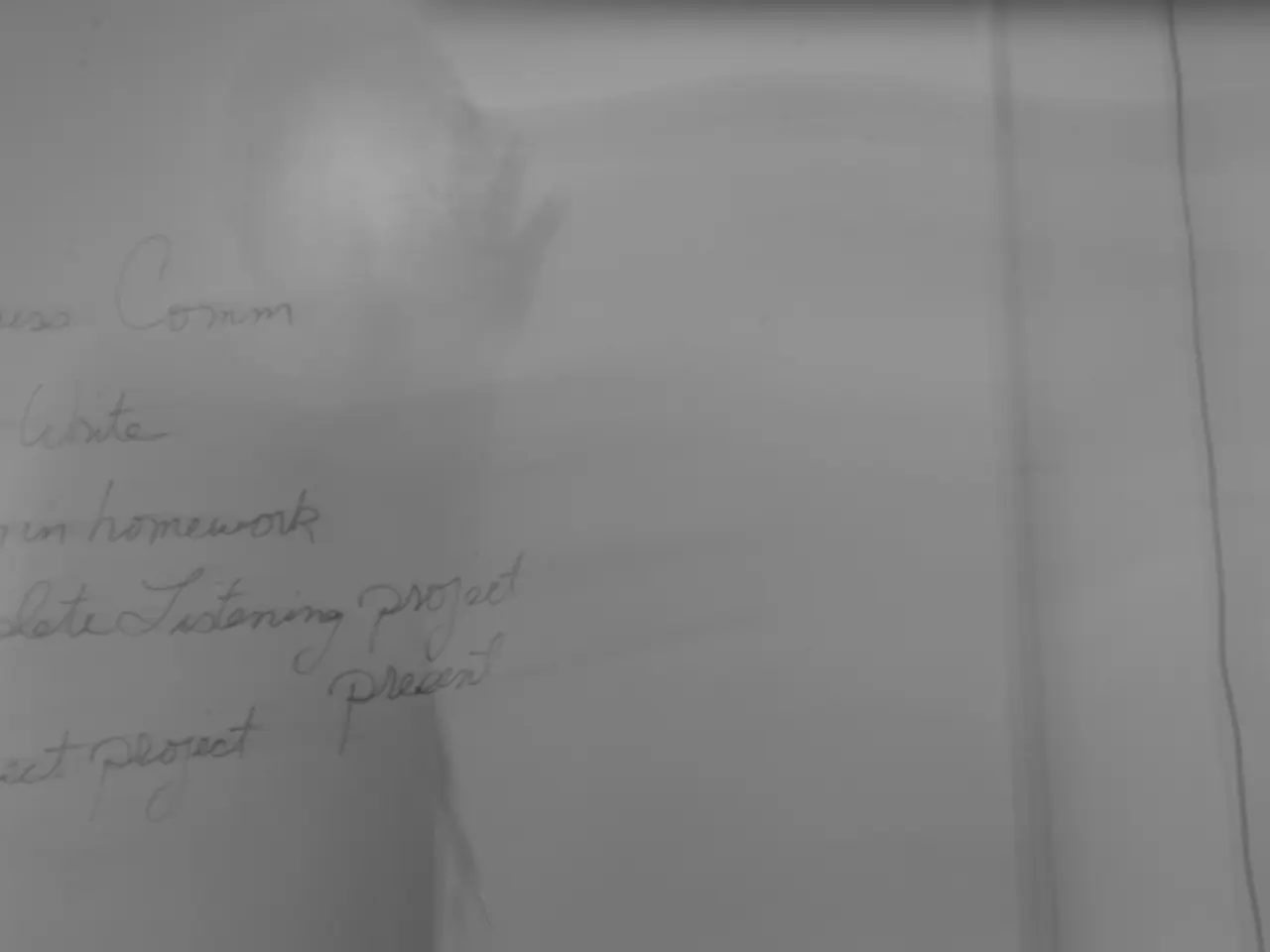Trump sees an opportunity for a resignation within the Federal Reserve Board
In the economic landscape of July 2025, the Federal Reserve (Fed) has maintained its benchmark interest rate at 4.25% to 4.5% for the fifth consecutive meeting, despite calls from former President Donald Trump to lower rates.
The interest rate, determined by the Fed, serves as a barometer for banks' borrowing costs and, in turn, influences the borrowing capabilities of governments. Trump, who has long advocated for lower borrowing costs to stimulate consumption and investment, has voiced his displeasure with the current rate, stating that he would consider firing Jerome Powell, the Fed chair, if legal hurdles and potential market instability were not a concern.
However, Powell's position seems secure, as Trump has indicated that it is "highly likely" that Powell will retain his position, despite his term ending next May. This assertion comes amidst an upcoming vacancy on the Fed board, following the unexpected resignation of Adriana Kugler. Trump has expressed his happiness about Kugler's departure, as it presents an opportunity for him to influence the selection of a loyal successor.
The Fed's decision to keep rates steady has been met with some internal dissent. Governors Michelle Bowman and Christopher Waller, who advocated for a cut in the interest rate, argued that inflation had moved closer to the Fed's target and that labor markets remained strong, justifying a rate reduction. Their dissenting voices, while rare, are not without support, as Trump believes that more members could align with his stance under pressure.
The Fed's cautious approach to monetary policy is attributed to existing inflation risks resulting from Trump's radical trade policy. This political pressure has coincided with a slowdown in economic growth in the US during the first half of the year, leading some analysts to speculate that the Fed may lower interest rates for the first time since December 2004 in September.
Meanwhile, external pressures on the Fed have not gone unnoticed. Trump has publicly criticised Powell, labelling him a "stubborn IDIOT" and claiming that Kugler knew Powell had made the wrong move regarding the interest rate. He has also demanded that the Fed board "TAKE CONTROL" if Powell continues to refuse to significantly cut the interest rate.
Despite these pressures, the Fed remains independent and focused on its mandate, prioritising economic data and inflation trends in its decisions. As the economic landscape continues to evolve, the future of monetary policy in the US remains uncertain, with Trump's influence on the Fed's future course potentially shaping the economic trajectory of the nation.
[1] Federal Reserve Keeps Rates Steady, Citing Economic Uncertainty and Inflation Pressures, CNBC, July 30, 2025. [2] Two Fed Governors Dissent Together on a Rate Decision for the First Time in Over 30 Years, The Wall Street Journal, July 30, 2025. [3] Fed Faces Political Pressure from Trump to Cut Rates, but Remains Independent, The New York Times, August 3, 2025.
The Fed's decision to keep interest rates steady, in spite of Trump's calls for lower rates, is a reflection of the Federal Reserve's focus on economic data and inflation trends, rather than politics (policy-and-legislation). Trump's continued criticism of the Fed chair, Jerome Powell, and demand for a lower interest rate indicates his involvement in the realm of politics, adding a layer of complexity to the general news landscape (politics, general-news).




